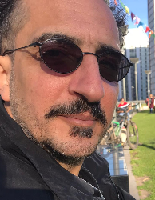Toni Sant is the Digital Curation Lab Director for the University of Salford at MediaCityUK.
Training is an essential component of good digital preservation. There are several ways that people involved in digital preservation receive their training. In some cases, digital preservationists come from a library and information science background. Other times a computer science degree leads to a specialism in tool development for preservation or technical infrastructure management. However, it’s also true to say that a large number of people who engage with digital preservation projects, without prior experience, could benefit greatly from even the most basic digital preservation training.
Digital preservation training is a broad church. The Digital Preservation Coalition and other organisations with members from across a wide range of institutions, such as the Open Preservation Foundation, offer systematic training in the form of short courses or workshops. An ever-growing number of higher education institutions offer degree courses at all levels providing varying quantities of digital preservation training.
Judging from my personal involvement in the training programmes offered through the University of Salford’s Digital Curation Lab at MediaCityUK, I’d say that people from very diverse backgrounds are attracted to formal digital preservation training. While it’s more likely that information professionals working largely in libraries and archives are the people who attend training events organised by the Digital Preservation Coalition and similar organisations, university degrees tend to attract trainees from a wider pool.
In most cases, the student profile at postgraduate level involves someone who works in an archival environment where digital curation needs have brought forward a requirement of operators skilled in digital preservation. The reason for this is that digital curation – which is to say the various ways we add value to our digital assets – has brought to the fore a need to care for digital assets in terms of long-term preservation. The exception to this is evident, more often, among our PhD candidates, who are largely either already working researchers or lecturers across a plethora of subjects. For them, digital preservation training is often a means to an end rather than a career goal in itself.
While I'm sure that this is a rather subjective perspective, to my mind, the FAIR data principles are what distinguish digital curation from digital preservation. If the simple act of deleting emails from our inboxes constitutes digital curation practice, than the active engagement with data to make it findable, accessible, inter-operable, and re-useable elevates digital curation to a point where digital preservation is a goal rather than a potentially hard-to-attain set of principles, which require specialised skills to deliver fully.
One final thought I'd like to share about digital preservation training today relates an excellent initiative that involved a substantial number of stakeholders in this area some time ago. Around 2012, DigCurV set out to develop a curriculum framework for digital curation. The DigCurV curriculum framework provided ways to identify, evaluate and plan training to meet the skill requirements of staff working on digital preservation or, more specifically, digital curation. I found the DigCurV approach quite useful, particularly because it proposed three ways (or lenses, they called them) to look at specific needs of distinct audiences and competencies: executive, management, and practitioner.
I wonder whether it's time to revisit the DigCurV curriculum framework now. Perhaps others have engaged with it well enough to simply leave it as a reference point in the field. However, my own perception on all this is that to ensure that digital preservation training is for good, like its very subject matter, it needs to be re-evaluated and migrated from time to time.
I'm interested in hearing what others think about this. Naturally this goes for people potentially engaging with digital preservation training at various levels, both professionally and academically. Do other people think that a symposium revisiting DigCurV would be a useful thing in the context of Digits: For Good?
